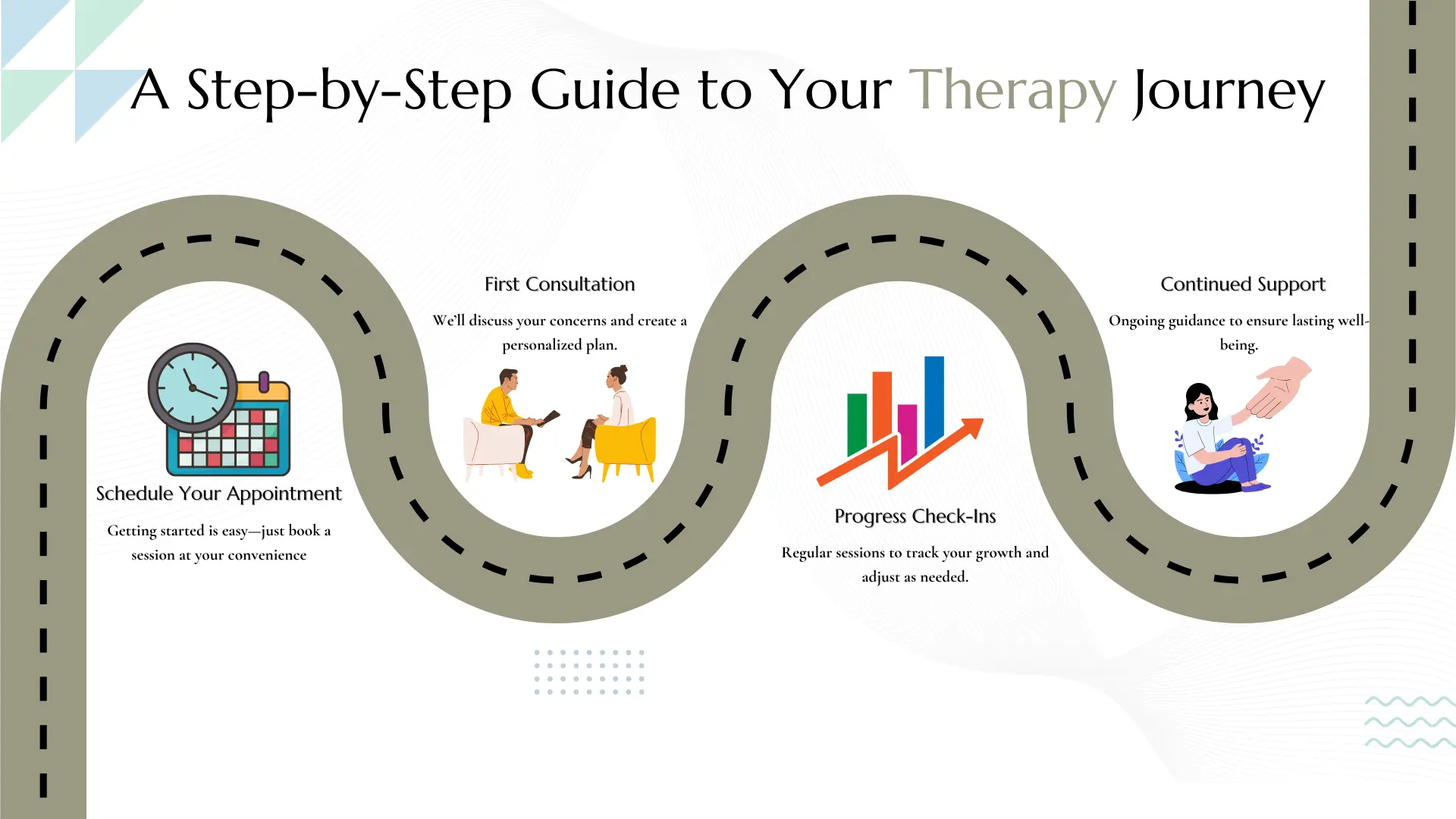USE COUPON CODE “FIRST50” TO GET 50% ON YOUR FIRST SESSION CALL SUPPORT FOR ANY ASSISTANT
15 Minute Free Consultation
Best psychologist and psychiatrist in Delhi NCR
Rebuilding minds offer best psychologist and psychiatrist in Delhi to support you in need. Counselling is a journey of self exploration and healing. We help individual find strength to face challenges, understand their emotions, and build healthier perspective. Our experts help individuals in their journey with welcoming and empathetic approach
 Afsana Khan2024-02-05My experience was really good everybody was really friendly. And the doctors were great
Afsana Khan2024-02-05My experience was really good everybody was really friendly. And the doctors were great rinku shooken2024-01-16Taking therapy from nidhi maam from last 6 months and finally i can sayyyy it was the besttt decision. Each of my problem has been better n almost fixed. Highly recommend
rinku shooken2024-01-16Taking therapy from nidhi maam from last 6 months and finally i can sayyyy it was the besttt decision. Each of my problem has been better n almost fixed. Highly recommend Keerat Aujla2024-01-10Very welcoming and non-judgemental environment ! I recommend Rebuilding Minds to anyone struggling with their internal struggles.
Keerat Aujla2024-01-10Very welcoming and non-judgemental environment ! I recommend Rebuilding Minds to anyone struggling with their internal struggles. Aman yadav Ssni2023-10-31Thank you rebuilding minds for wonderful treatment
Aman yadav Ssni2023-10-31Thank you rebuilding minds for wonderful treatment Praharsh Rastogi2023-10-10I had a very positive experience with rebuilding minds. The counselling sessions have been very helpful for me to deal with anxiety issues and the staff is also very friendly. Vishakha is very knowledgeable and kind hearted person. She is best at her profession. Highly recommended to those who are in need.
Praharsh Rastogi2023-10-10I had a very positive experience with rebuilding minds. The counselling sessions have been very helpful for me to deal with anxiety issues and the staff is also very friendly. Vishakha is very knowledgeable and kind hearted person. She is best at her profession. Highly recommended to those who are in need.
Best psychiatrist and psychologist in Delhi NCR
Rebuilding minds offer best Psychologist and psychiatrist in Delhi and Gurgaon to support you in need. Counselling is a journey of self exploration and healing. We help individual find strength to face challenges, understand their emotions, and build healthier perspective. Our experts help individuals in their journey with welcoming and empathetic approach
LET YOUR MIND GLOW
 Afsana Khan2024-02-05My experience was really good everybody was really friendly. And the doctors were great
Afsana Khan2024-02-05My experience was really good everybody was really friendly. And the doctors were great rinku shooken2024-01-16Taking therapy from nidhi maam from last 6 months and finally i can sayyyy it was the besttt decision. Each of my problem has been better n almost fixed. Highly recommend
rinku shooken2024-01-16Taking therapy from nidhi maam from last 6 months and finally i can sayyyy it was the besttt decision. Each of my problem has been better n almost fixed. Highly recommend Keerat Aujla2024-01-10Very welcoming and non-judgemental environment ! I recommend Rebuilding Minds to anyone struggling with their internal struggles.
Keerat Aujla2024-01-10Very welcoming and non-judgemental environment ! I recommend Rebuilding Minds to anyone struggling with their internal struggles. Aman yadav Ssni2023-10-31Thank you rebuilding minds for wonderful treatment
Aman yadav Ssni2023-10-31Thank you rebuilding minds for wonderful treatment Praharsh Rastogi2023-10-10I had a very positive experience with rebuilding minds. The counselling sessions have been very helpful for me to deal with anxiety issues and the staff is also very friendly. Vishakha is very knowledgeable and kind hearted person. She is best at her profession. Highly recommended to those who are in need.
Praharsh Rastogi2023-10-10I had a very positive experience with rebuilding minds. The counselling sessions have been very helpful for me to deal with anxiety issues and the staff is also very friendly. Vishakha is very knowledgeable and kind hearted person. She is best at her profession. Highly recommended to those who are in need.






- SERVICES
Best psychologist and psychiatrist in Delhi

- WHY CHOOSE US?
Trusted Care, Lasting Positive Change
At Rebuilding Minds, Our team of best psychologist and psychiatrist in Delhi provide compassionate, evidence-based care to help individual for a full filling life.
Compassionate & Experienced Professionals
Safe & Supportive Environment
Personalized Therapy Plans
Long-Term Growth & Resilience

Choosing Us for Mental Wellness
At Rebuilding Minds, we do more than just therapy—we help you heal and grow in a way that lasts. Our team understands that everyone’s journey is different, so we provide support that fits your unique needs. Using proven methods and a caring approach, we create a safe space where you can feel heard and understood. Whether you need guidance, strength, or a fresh start, we’re here to walk with you every step of the way.
- LATEST BLOG
Mind Matters: Your Roadmap to inner balance

Best psychologist and psychiatrist in Delhi
War and Anxiety: Understanding the Psychological Impact of Conflict
Currently, our country is facing serious dilemmas with Pakistan. As a result, Operation Sindoor has emerged in response to the injustices suffered by the citizens of India. What began as a response to injustice has now escalated into a full-scale war.
War affects nations in many visible ways—destruction of infrastructure, loss of lives, and economic collapse. However, one of the most widespread and long-lasting effects of war is on mental health, especially anxiety disorders. In fact, war can significantly increase anxiety due to persistent exposure to trauma.
Particularly, citizens residing in the country—especially those living in border areas—experience heightened tension and anxiety related to the constant threat of conflict. As a result, their daily lives are overshadowed by fear and uncertainty.
The Nature of War-Induced Anxiety
Anxiety is a natural human response to fear, danger, or uncertainty. In war zones, people are constantly exposed to life-threatening situations: bombings, displacement, loss of loved ones, and social instability. Consequently, prolonged exposure to such events often leads to chronic anxiety disorders, including Generalized Anxiety Disorder (GAD), Panic Disorder, and Post-Traumatic Stress Disorder (PTSD).
If you’re struggling, know that you are not alone. Here are a few strategies that may help you cope:
Don’t avoid your feelings — Instead, allow yourself to feel them and understand that it’s okay to be scared. Try journaling to express what you’re going through.
Limit news and social media — Set time boundaries and stick to a few trusted sources to avoid information overload.
Ask for help — Reach out when things feel overwhelming. You must know that we are just a call away.
Vulnerable Populations
Moreover, certain groups are more vulnerable to anxiety during and after conflict. Children and adolescents, for instance, are especially at risk due to disruptions in their development, education, and sense of security. According to research, children exposed to war are significantly more likely to develop anxiety symptoms that may persist into adulthood.
Similarly, women—particularly those who have lost family members or faced gender-based violence—experience elevated levels of anxiety and depression. In addition, aged individuals and people with disabilities face additional challenges when access to healthcare and mobility is compromised in war-torn regions.
Long-Term Societal Effects
Even after the fighting ends, the psychological effects of war continue. War-related anxiety can undermine societal cohesion, productivity, and national recovery efforts. For instance, individuals with untreated anxiety may find it difficult to reintegrate into society, maintain employment, or trust institutions. This, in turn, can slow down post-war rebuilding and perpetuate cycles of mental health neglect.
Furthermore, generational trauma is a serious concern. Children of war survivors may inherit the emotional scars of conflict, leading to persistent mental health struggles—even in times of peace.
Conclusion
In summary, war and anxiety are deeply interconnected. The psychological toll of conflict can last not just for years, but for generations. Therefore, by acknowledging and addressing these mental health challenges proactively, we can take meaningful steps toward healing, resilience, and societal stability in the aftermath of war.



